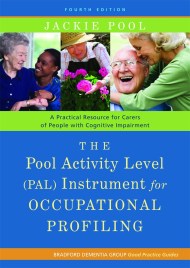LGBTQ+ People and Dementia
On sale
21st July 2023
Price: £19.99
Bringing together research, policy and the voices of LGBTQ+ people with dementia, this good practice guide highlights the importance of a person-centred approach.
Care and support should recognise and validate different – and often intersectional – LGBTQ+ identities. Readers are encouraged to move away from the idea of equality as treating everyone the same, towards treating everyone as individuals.
The vast changes in the social and legal status of LGBTQ+ people through recent decades can uniquely affect their later lives. Dementia services are often under-prepared to meet their needs, and there can be prejudice and discrimination.
Creating LGBTQ+ inclusive services can be challenging. The book explains how to deal with these challenges, giving lots of practical examples. ‘Food for thought’ sections offer opportunities for reflection.
Becoming more informed about LGBTQ+ lives and creating services which are LGBTQ+ inclusive will improve the experiences of LGBTQ+ people living with dementia and encourage the best possible quality care.
Care and support should recognise and validate different – and often intersectional – LGBTQ+ identities. Readers are encouraged to move away from the idea of equality as treating everyone the same, towards treating everyone as individuals.
The vast changes in the social and legal status of LGBTQ+ people through recent decades can uniquely affect their later lives. Dementia services are often under-prepared to meet their needs, and there can be prejudice and discrimination.
Creating LGBTQ+ inclusive services can be challenging. The book explains how to deal with these challenges, giving lots of practical examples. ‘Food for thought’ sections offer opportunities for reflection.
Becoming more informed about LGBTQ+ lives and creating services which are LGBTQ+ inclusive will improve the experiences of LGBTQ+ people living with dementia and encourage the best possible quality care.
Newsletter Signup
By clicking ‘Sign Up,’ I acknowledge that I have read and agree to Hachette Book Group’s Privacy Policy and Terms of Use
Reviews
Understanding, reflecting and action are the key messages of this book, linking person-centred dementia practice to equalities and respect. The authors focus on social care and social work practice to highlight how LGBTQ+ people living with dementia may worry about, fear and avoid care encounters. The stories they include can be read alone or in teams as thought-provoking ways to implement truly person-centred dementia care.
This is a timely, accessible and informative book which brings to life the voices of LGBTQ people living with dementia and the injustices they face in relation to inequalities in dementia care for LGBTQ citizens. Based on research and practice knowledge, the authors provide excellent 'food for thought' and key learning with which every social worker should engage.
This short and punchy book feels timely and much-needed. Packed with case studies of good practice and prompts to reflect, it offers a wealth of ways that providers can rethink individualised health and social care with LGBTQ+ people. As an ally, I learned a lot! Highly recommended
Filled with case studies and examples of good practice throughout, the rich and diverse histories and individual needs of LGBTQ+ people living with dementia are sensitively presented. This book is an essential resource for health and social care providers.
This book is not only informative but also provides the opportunity for constructively challenging viewpoints and practice. The case studies indicate why things need to change for people who identify as LGBTQ+, and the good practice examples provide evidence of how this can be done. This book also provides some great examples of how to challenge discriminatory behaviours. Dementia doesn't discriminate and neither should we!
An important and insightful read for clinicians and researchers, brought to life by the voices of LGBTQ+ people. We must do better to improve the care experiences of LGBTQ+ people living with dementia, this good practice guide encourages the reader to reflect on their own practices and assumptions.
Immensely readable, this book takes the reader through why and how LGBTQ+ people's care needs differ and offers practical advice and case studies of how LGBTQ+ affirmative care can be provided. It should be essential reading for all those working in dementia care.


















